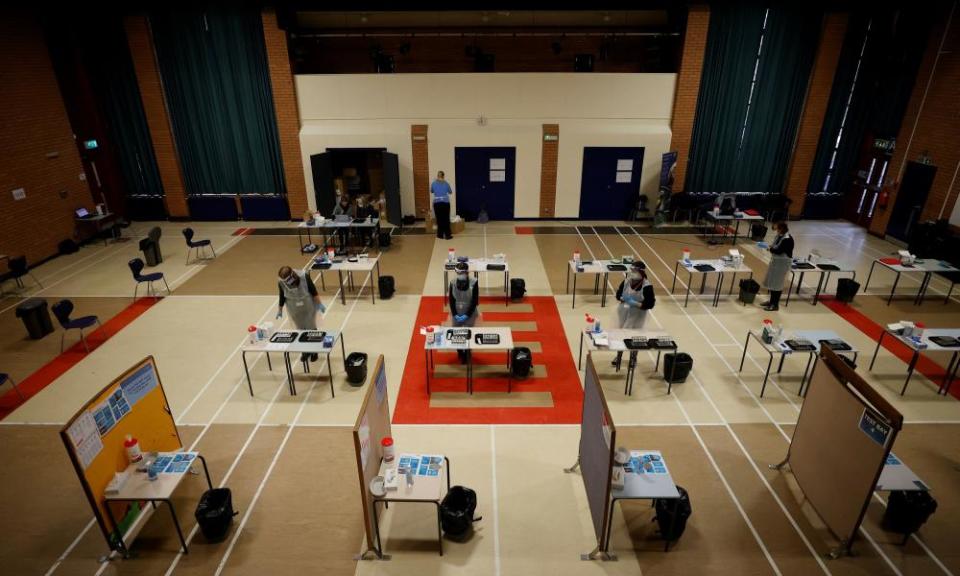Special needs pupils in England living in dread of returning to the classroom

While many parents are desperate for their children to return to school after months of home-learning away from friends, some children with special needs are facing the end of the best educational experience they have had in years.
Many children with special educational needs and disabilities (Send) have struggled during lockdown, but others have flourished, freed from school environments that did not suit them.
Their parents fear that from tomorrow, in England, this progress will start to disappear. “This week we have seen a huge change in him. He is really down about it all coming to an end,” said Tracey Rowell, from Newbury in Berkshire, speaking about her 12-year-old son Albert, who has autism.
After teachers at his former primary school started to restrain him when he displayed signs of anxiety, his attendance fell sharply, and when he started secondary school last September, he found the experience overwhelming and began withdrawing after a couple of weeks.
“But since January, because the schools had to be prepared to go online with lessons, he loves it,” said Rowell. “He’s had his odd wobble but I’ve been there to help him and sort it out straight away … so it’s not something festering or building up. It’s been brilliant.”
With mainstream children returning to classrooms, his school does not have the resources to maintain online learning just for him, nor the teaching assistants to provide one-to-one support.
As a result, Albert won’t be returning on Monday. “He’s already said, he can’t,” Rowell told the Observer. “He hasn’t been able to go in just with a few children last week just to try it, it’s just been too much.”
Funding has been secured for two hours of maths and two hours of English a week for up to eight weeks, one-on-one, online, as a step towards returning to school. But just four hours a week of teaching is less than Albert received during lockdown.
Beth Wilson’s 11-year-old daughter Cobie, who has autism and anxiety disorder, has also taken to online learning, having found school a “massive challenge” beforehand. “She’s really, really gained confidence and her self-esteem has come on massively, I think because she’s had time to focus just on her without any other outside pressures or peer group pressures,” said Wilson.
The issue in both cases is that parts of the education system fail to meet Send children’s needs both in and out of school – at least, when all other children aren’t having to home-school as well.
Related: Special needs pupils in England 'pushed to one side' in Covid crisis
Fran Morgan, founder of Square Peg, which campaigns for more flexible schooling for children who struggle in classroom environments, pointed to government data showing that around 200,000 Send children were persistent absentees before the pandemic. “These families are often desperate for access to online educational provision, which was suddenly made available in a matter of weeks when the pandemic hit,” she said. “For those children who thrived in lockdown, with the pressure of enforceable mandatory school attendance removed, next week will probably see their anxieties return with a vengeance.”
A Department for Education spokesperson said: “The classroom is the very best place for education, including for pupils with special educational needs and disabilities. Our guidance clarifies how schools can best support children and young people with Send, and we have boosted high-needs funding by nearly a quarter to £8bn in 2021-22”

 Yahoo Finance
Yahoo Finance 